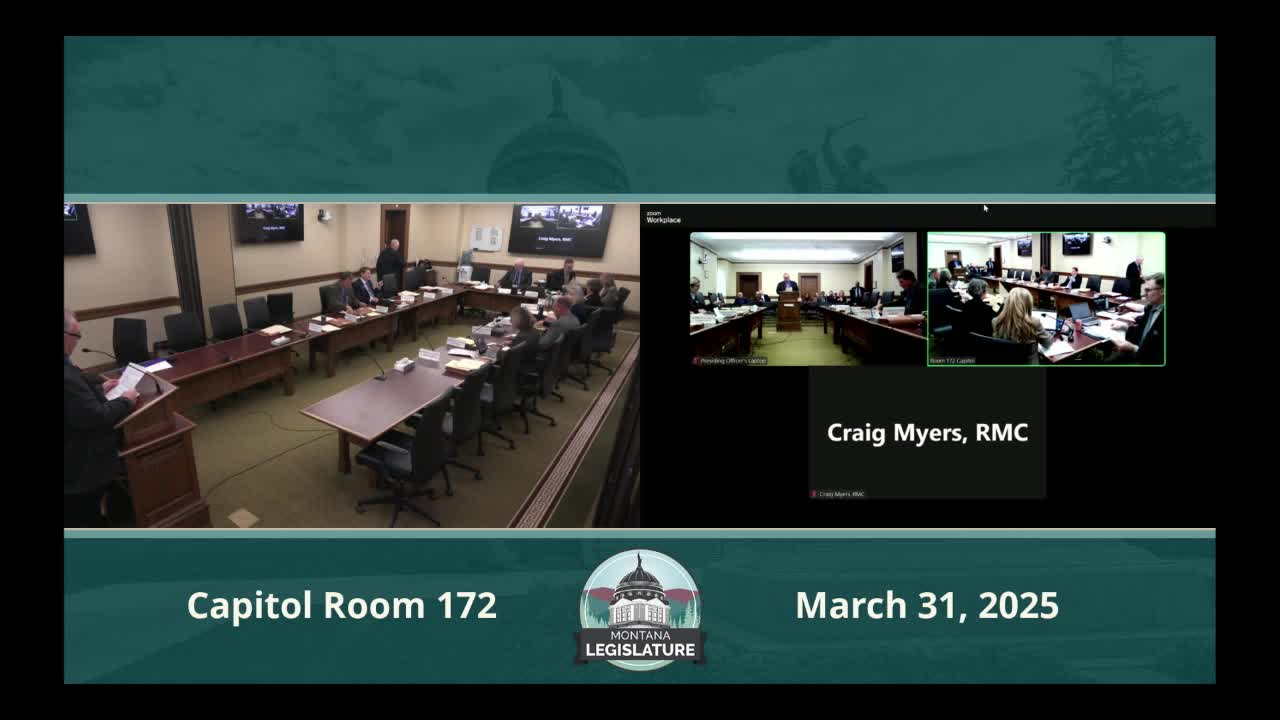Article not found
This article is no longer available. But don't worry—we've gathered other articles that discuss the same topic.
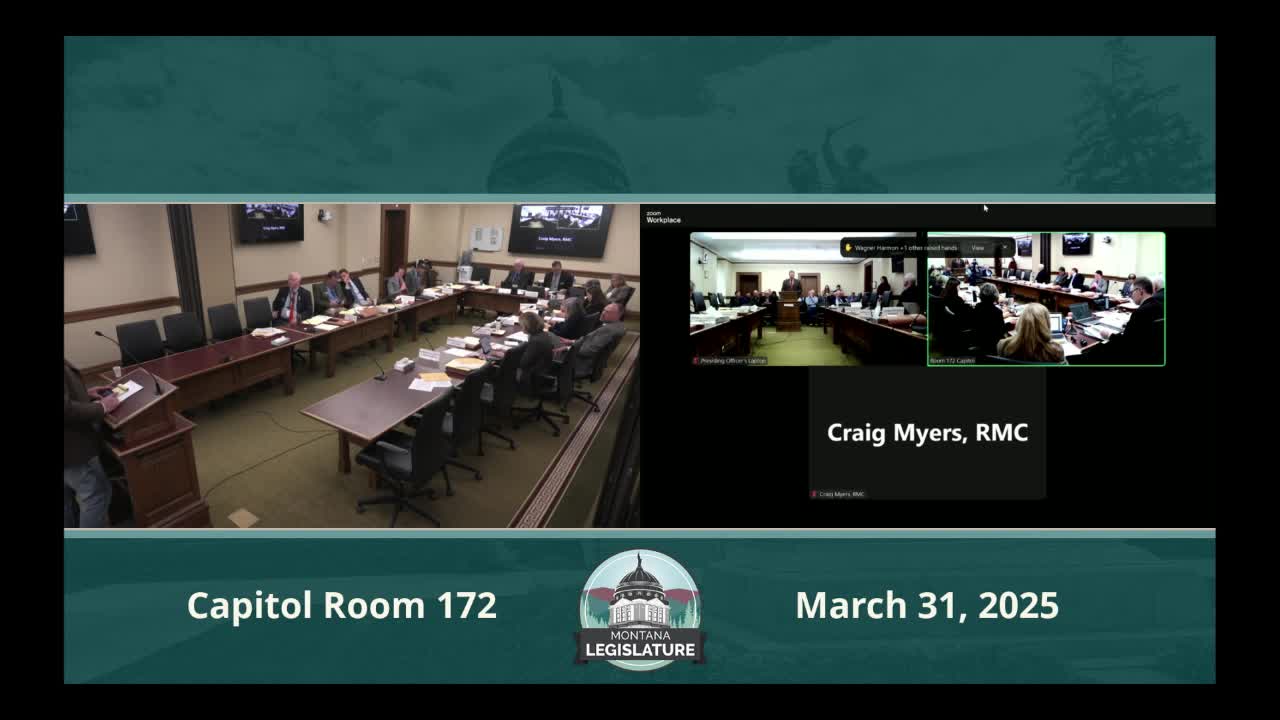
Heated testimony on bill to create permanent water division court and clarify post-adjudication jurisdiction
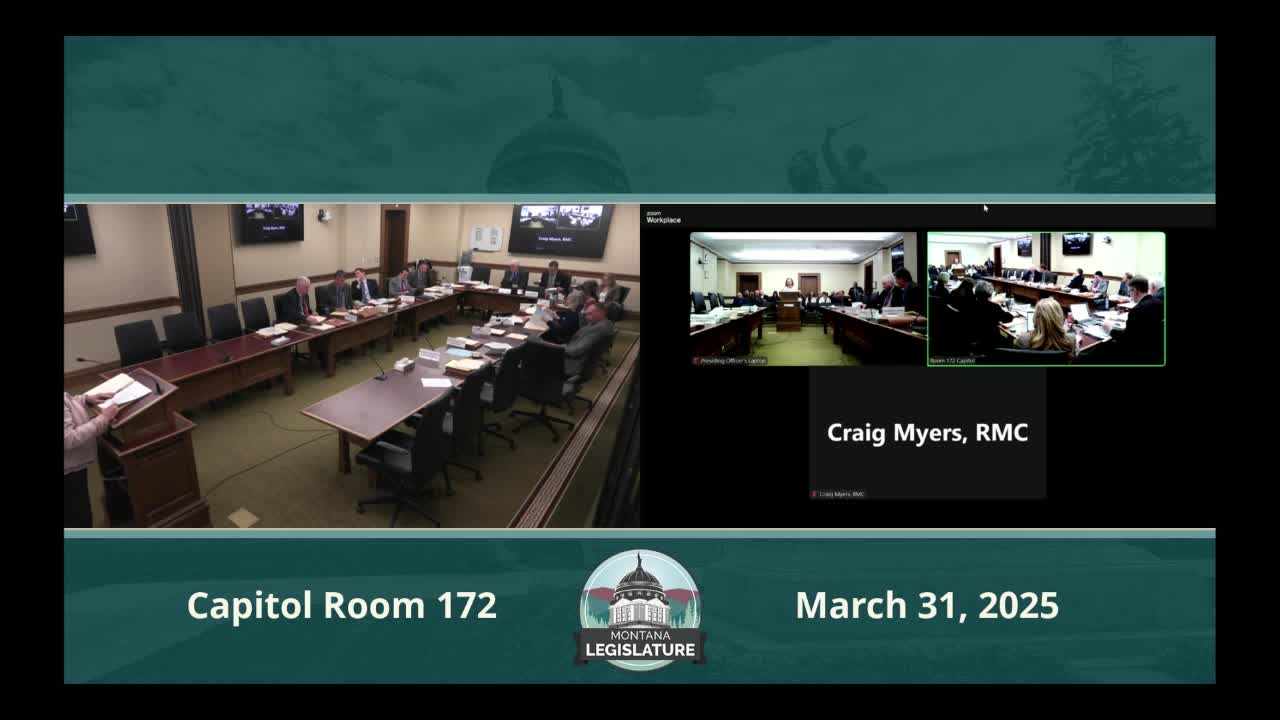
Representative seeks two-year study and temporary pause on large permits for Fox Hills/Hell Creek aquifer
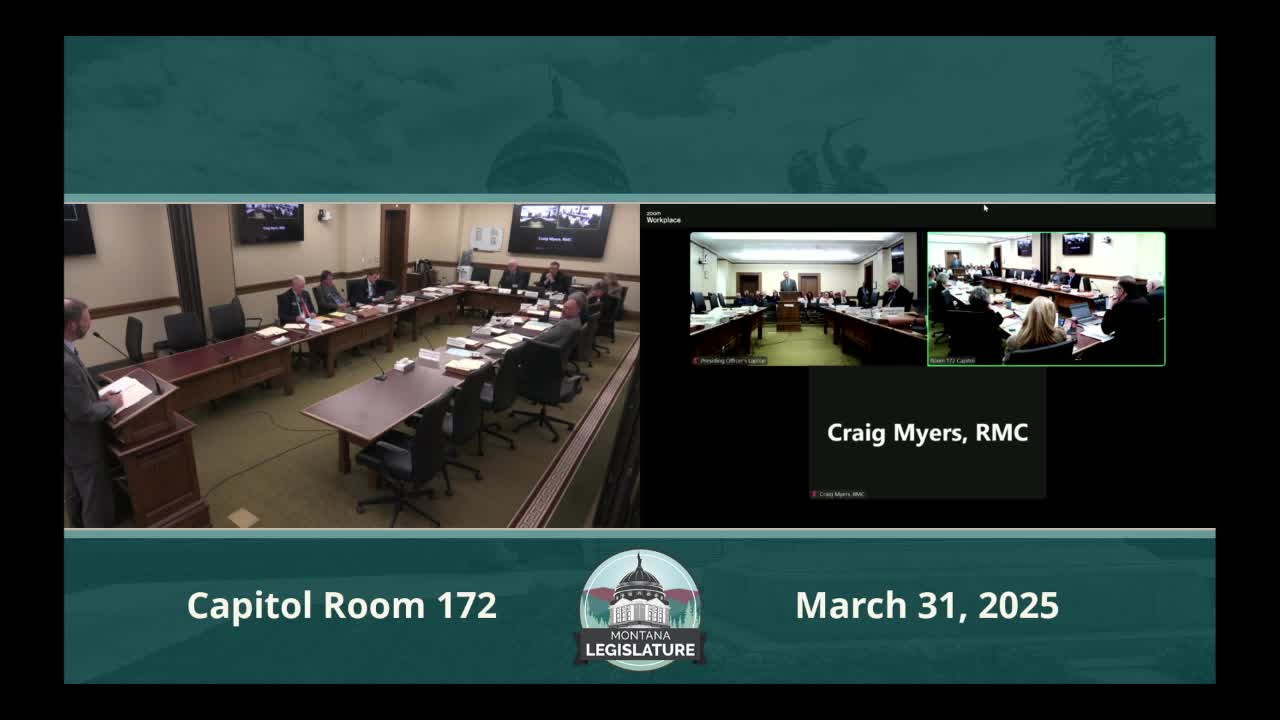
Senate bill would restore temporary water-leasing tool with negotiated protections
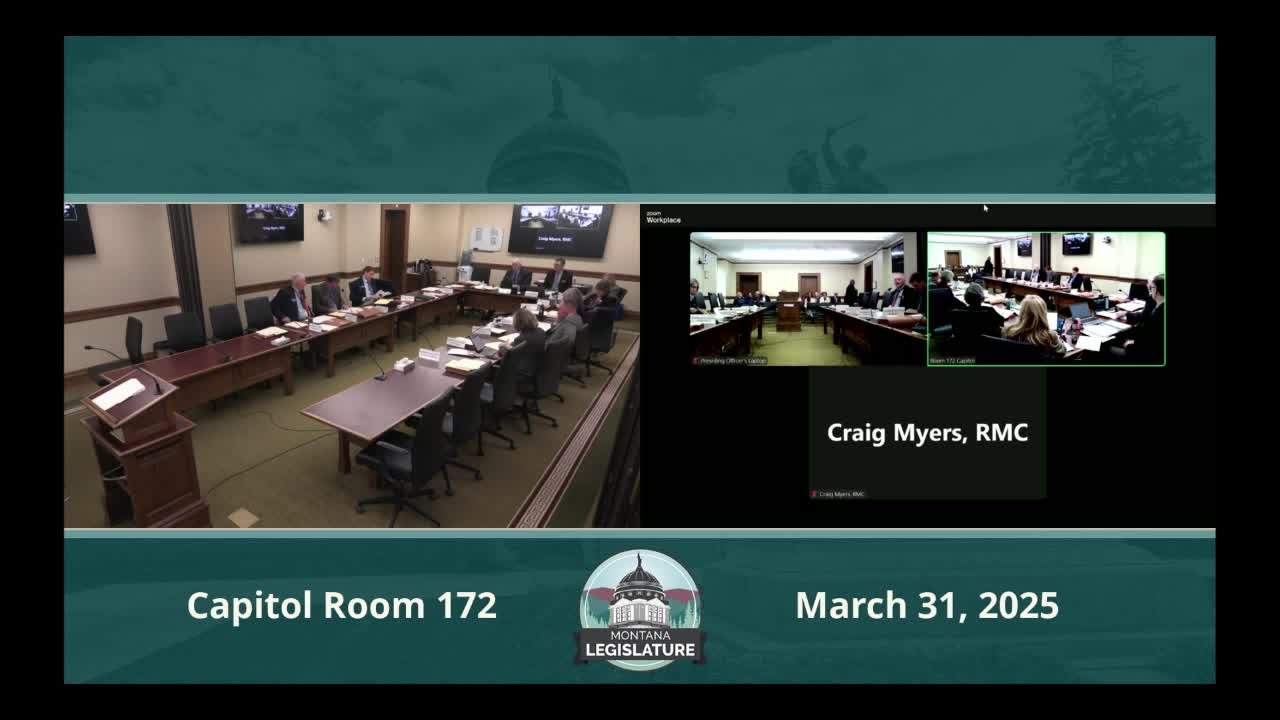
Montana resolution urges federal attention to forest management and wildfire strategies
